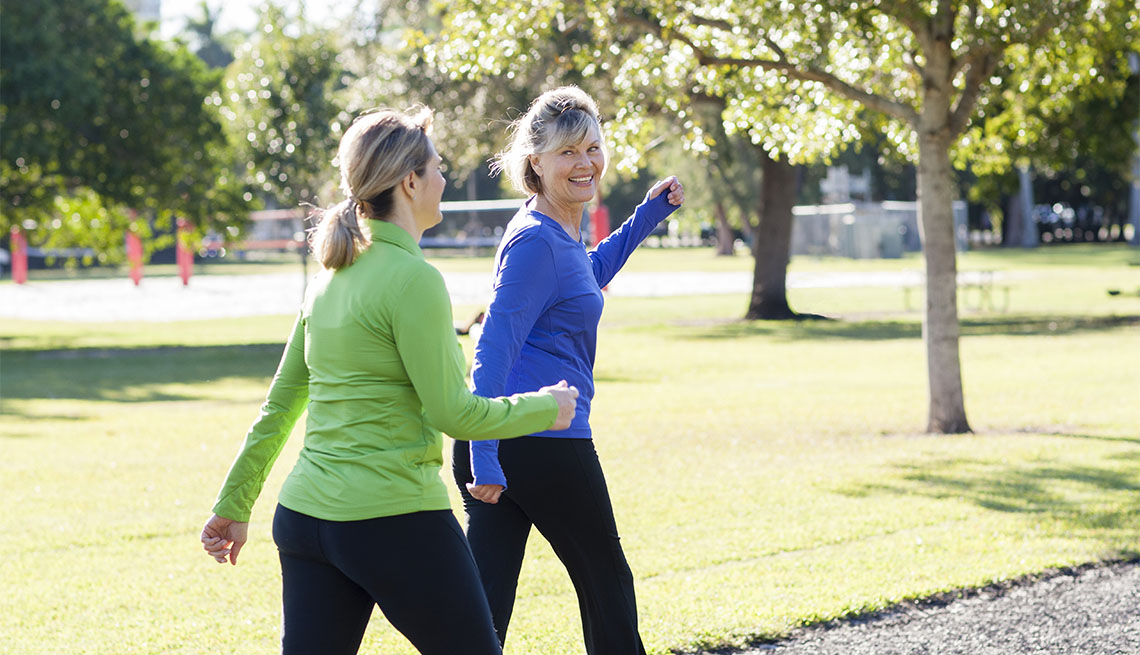Play all audios:
Exercising with a friend or acquaintance has long been recommended as a practical way to make sure you don't skip something like your daily walk. For one thing, “It's almost
impossible to say you're skipping your workout when you have someone waiting for you,” notes personal trainer Allison Earnst. Jean Fifield, 74, agrees. If it's 9 degrees with no
wind and her rural Vermont roads are passable, most weekday mornings find Fifield heading out to walk a couple of miles with her neighbor Margaret Nocca, 86. As Fifield tells it, Margaret is
the “real trouper” who doesn't let her “wimp out.” "She's always the one who encourages me to get out and moving even if the weather isn't great,” Fifield says. Aside
from reliably motivating you to show up to exercise, partnering up with a buddy increases the amount and intensity of physical activity you do, researchers have found. A study from Michigan
State University, for one, found that doing aerobic exercise with a partner motivated subjects to work harder and longer, compared with those working out alone, thus improving overall
fitness results. The boost held even when the friend who was motivating someone to hold a plank for 24 percent longer was a virtual partner. In fact, just knowing you have a virtual partner
exercising along with you (but in another location) can cause you to significantly lengthen your workout, according to a study from the Society of Behavioral Medicine. Other studies have
shown that people who spend time around fitness-minded pals also tend to be more successful at weight loss. In fact, the ideal partner — at least on paper — may be someone in slightly better
shape than you are. Research has shown that a partner's better fitness habits can rub off on us, inspiring us to reach higher levels of conditioning. And the effect is not small: These
researchers found that having a more fit buddy could increase your workout time and intensity by as much as 200 percent. Of course, finding a workout companion can yield benefits beyond a
lower resting heart rate. For instance, daily exercise partners who are friends (or who become friends) can provide the kind of regular emotional and social contact that's critical to
health, too. Fifield says she's found that kind of comraderie not only with her walking buddy but also with a small group of women who make up her local strength training class, which
is part of the larger Tufts University Strong Living Program. "We work out together,” says Fifield, “but we also talk about feelings and politics, and we're there for each other if
it's someone's birthday, if anyone needs anything or if a spouse is sick.” Along with being a weight lifting group, Fifield notes, “we're a real support network for each
other.”

